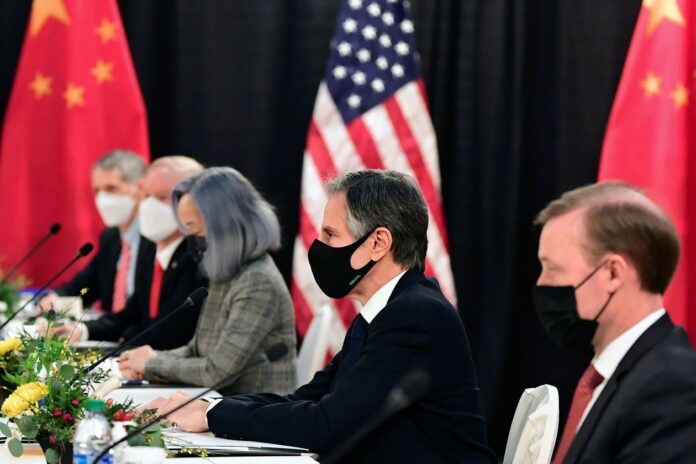
(TibetanReview.net, Mar20’21) – The Chinese were “defensive” when the US side confronted them with “concerns” about Muslim-majority Xinjiang province, Hong Kong, Tibet, and Taiwan, the hindustantimes.com Mar 20 cited US Secretary of State Antony Blinken as saying Mar 19 after the conclusion of two days of talks that he and National Secretary Adviser Jake Sullivan held with their Chinese counterparts in Anchorage, Alaska.
The two met China’s Director of the Office of the Central Commission for Foreign Affairs Yang Jiechi, who is the top Chinese diplomat, and State Councilor Wang Yi over Mar 18-19 in a first high-level meeting between the two countries after President Joe Biden took office.
The report noted that the meetings were expected to be contentious as they took place in the shadow of the first sanctions recently imposed by the Biden administration on China over Hong Kong.
Blinken was reported to have set the tone at the meeting, bluntly raising US “concerns” over Xinjiang, Hong Kong, Tibet and Taiwan. And Yang was stated to have led the Chinese pushback with a long criticism of the US on democratic values and human rights.
Yang’s long rebuke was stated to have gone way over two minutes allotted to every speaker by mutual consent. And Blinken and Sullivan retaliated by allowing themselves, as hosts, a second round of remarks, using that additional time for more plain-speaking.
Blinken was reported to have warned the Chinese against betting against the US while Sullivan was reported to have chided them for their lack of confidence in dealing with criticism. The American side dug in on that theme in remarks, wrapping up the meet, the report said.
Following the meeting, Blinken has told reporters, “We certainly know and knew going in that there are a number of areas where we are fundamentally at odds, including China’s actions in Xinjiang, with regard to Hong Kong, Tibet, increasingly Taiwan, as well as actions that it’s taken in cyberspace.”





